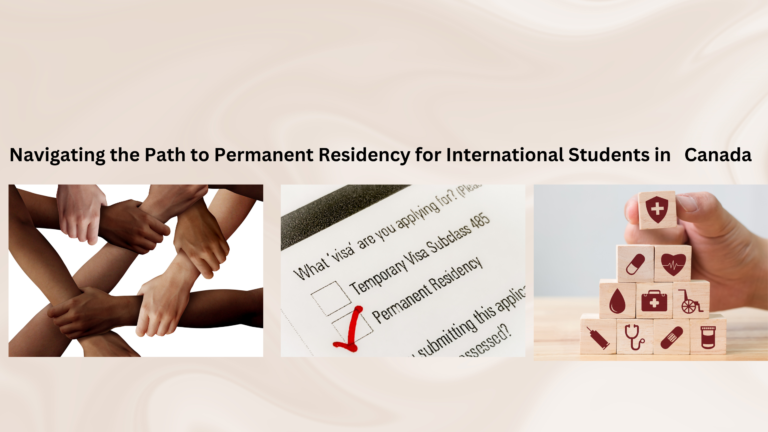Easy courses in Canada for international students
Canada is a top destination for international students. It offers a blend of quality education and multicultural experiences.
This article aims to guide those considering to study in Canada. We focus on easy courses in Canadian colleges and universities.
What defines an ‘easy course’? It could be the acceptance rate, workload, or available resources. We’ll delve into this and more.
We’ll also explore the application process, language requirements, and financial considerations. Plus, we’ll touch on student life and post-graduation prospects.
Whether you’re a high school graduate, a university student, or an adult considering further education, this guide is for you. Let’s embark on this journey to study in Canada.
Understanding the Canadian Education System
The Canadian education system is renowned globally. It ranks among the top in the world for quality and accessibility.
Canadian colleges and universities offer a wide range of programs. From undergraduate degrees to doctorates, there’s something for everyone. The system also supports vocational and technical training. This diversity caters to various educational and career goals.
Why Study in Canada?
Canada is a top choice for international students. It offers a high standard of living and a safe, welcoming environment.
The benefits of studying in Canada are numerous:
- Quality education from globally recognized institutions
- Multicultural society that embraces diversity
- Safe and friendly cities
- Opportunities for work during and after studies
- Potential pathways to permanent residency
Choosing to study in Canada can be a life-changing decision. It opens doors to numerous opportunities for personal and professional growth.
Defining ‘Easy Courses’ for International Students
What makes a course ‘easy’ can vary from student to student. It often depends on individual strengths, interests, and academic background.
However, in general, ‘easy courses’ are those with a high acceptance rate, manageable workload, and ample resources for support. These courses can provide a smoother transition into the Canadian education system for international students.
Popular Easy Courses in Canadian Colleges and Universities
Canadian colleges and universities offer a wide range of courses that are popular among international students. These courses are known for their comprehensive curriculum, supportive faculty, and high acceptance rates.
Some of the popular ‘easy courses’ include Business Administration, Computer Science, Environmental Science, Hospitality Management, and Liberal Arts. These courses are designed to provide students with a solid foundation in their chosen field, while also offering flexibility and support to help them succeed.
Here is a list of some Canadian institutions known for these courses:
- Humber College: Business Administration
- Seneca College: Computer Science
- University of British Columbia: Environmental Science
- Ryerson University: Hospitality Management
- University of Toronto: Liberal Arts
Remember, the ‘ease’ of a course can be subjective. It’s important to choose a course that aligns with your interests and career goals.
Application Process Simplified
Applying to study in Canada may seem daunting, but the process is quite straightforward. Most Canadian colleges and universities have an online application system for international students.
You’ll need to provide academic transcripts, proof of language proficiency, and a statement of purpose. Some institutions may also require letters of recommendation. Once you’ve submitted your application, you’ll need to wait for the admission decision. If accepted, you’ll receive a letter of acceptance, which is necessary for your study permit application.
Language Requirements and Support
Proficiency in English or French is a key requirement for studying in Canada. Most institutions require proof of language proficiency, such as IELTS or TOEFL scores for English, or TEF for French.
However, don’t worry if your language skills aren’t perfect. Many Canadian colleges and universities offer language support services. These include language courses, tutoring, and academic writing workshops to help international students succeed.
Financial Considerations: Costs, Scholarships, and Aid
Studying in Canada is a financial investment. Tuition fees for international students can vary widely, depending on the institution and course. Living costs also need to be factored in, including accommodation, food, and transportation.
However, there are ways to manage these costs. Many Canadian colleges and universities offer scholarships specifically for international students. These can significantly reduce the financial burden of studying abroad.
In addition, there are other forms of financial aid available. These include:
- Work-study programs, allowing students to work on campus
- Financial aid from the Canadian government for eligible students
- Loans and grants from home countries that can be used for studying abroad
- Private scholarships and grants available for international students.
Student Life and Support Services in Canada
Student life in Canada offers a rich blend of academics, extracurricular activities, and cultural experiences. From joining clubs and societies to participating in campus events, there’s always something to do. This vibrant student life helps international students to integrate and make the most of their study abroad experience.
In addition, Canadian colleges and universities provide a range of support services for international students. These include academic advising, language support, mental health resources, and career counseling. These services are designed to help students succeed in their studies and beyond.
Work While You Study: Opportunities and Regulations
Canada offers ample work opportunities for international students. This not only helps to offset living costs but also provides valuable work experience. Many Canadian colleges and universities have co-op programs that integrate academic study with practical work experience in the student’s field of study.
However, it’s important to understand the regulations around working while studying. As an international student, you are allowed to work up to 20 hours per week during academic sessions and full-time during scheduled breaks. Always ensure you are aware of the rules to maintain your student status.
After Graduation: Employment and Immigration Prospects
Upon graduation, international students in Canada have promising employment prospects. Canadian education is globally recognized, and the work experience gained during your studies can give you a competitive edge. Many employers value the multicultural perspective that international students bring to their organizations.
For those who wish to stay in Canada after graduation, there are several immigration programs available. The Post-Graduation Work Permit allows graduates to work in Canada for up to three years. This can be a stepping stone towards applying for permanent residency, if that’s part of your plan. Always stay updated with the latest immigration policies.
Conclusion and Next Steps
Studying in Canada offers a wealth of opportunities for international students. From easy courses to a vibrant student life, the benefits are numerous. It’s a journey that goes beyond academics, fostering global citizenship and cultural exchange.
As you consider your options, remember to research thoroughly. Choose the right course and institution that align with your goals. Reach out to education consultants, attend information sessions, and connect with current students. Your journey to study in Canada is a significant step towards your future. Make it count!








